Design Technology
Head of Department: Mr A M Beaty
Exam board: Edexcel
Qualification name: Design Technology: Product Design
Qualification codes: GCE AS 8RM01, GCE A Level 9RM01
What you will study
Lower Sixth
Unit 1 (6RM01): Portfolio of Creative Skills
In this unit students are given the opportunity to develop their creative, technical and practical skills through a series of product investigation, design and manufacturing activities.
Unit 2 (6RM02): Design Technology in Practice
In this unit students develop their knowledge and understanding of a wide range of materials and processes used in the field of design and technology. It is important for students, as designers, to learn about materials and processes so that they can develop a greater understanding of how products can be designed and manufactured. Students will also learn about industrial and commercial practices, and the importance of quality checks and the health and safety issues that have to be considered at all times.
Upper Sixth
Unit 3 (6RM03): Designing for the Future
In this unit students develop their knowledge and understanding of a range of modern design and manufacturing practices and contemporary design issues. The modern designer must have a good working knowledge of the use of ICT and systems and control technology in the design and manufacture of products. They must also be aware of the important contributions of designers from the past which may provide inspiration for future design. It is increasingly important that students develop an awareness of the impact of design and technological activities on the environment. Sustainable product design is a key feature of modern design practices.
Unit 4 (6RM04): Commercial Design
In this unit students are given the opportunity to apply the skills they have acquired and developed throughout this course of study, to design and make a product of their choice that comply with the requirements of a resistant materials technology product.
How you will be assessed
6RM01: Portfolio (60% of AS, 30% of A Level)
Internally marked and externally moderated coursework.
6RM02: A 90-minute written paper (40% of AS, 20% of A Level)
Short answer and extended writing-type questions.
6RM03: A two-hour written paper (20% of A Level)
Short answer and extended writing-type questions.
6RM04: Coursework (30% of A Level)
Internally marked and externally moderated coursework.
Why choose Design Technology?
The study of design technology product design seeks to develop students’ knowledge, understanding, skills and application for designing products. The subject encompasses a wide range of design disciplines but is firmly rooted in the skills required to design and make high quality products – products that are fit for purpose, satisfy wants and needs, enhance our day to day lives and give students the opportunity to demonstrate their design and technology capability.
Course requirements
This course is designed to be a natural progression from GCSE Design Technology courses and it is recommended that students have achieved at least a grade B in the subject at GCSE.
Related subjects at Sixth Form
Art and Design, Business Studies, Mathematics and Physics are all suitable subjects for related study, while many of the problem-solving skills developed can be applied to other subjects.
Where could it lead?
Students who take A Level Design Technology often go on to study degrees in aeronautical engineering, art and design, biomedical materials science, electrical or electronic engineering, materials design, mechanical engineering and industrial or product design. These can, in turn, lead to careers in engineering, industrial design, graphic design, packaging technology, research, website design, project engineering, computer aided design, drafting and furniture design.
Further important information
A Level Design Technology demands commitment, consistent effort, maturity and self-discipline. The many benefits contribute greatly to preparing students for the realities of the world of work. The coursework element can be tailored to gain experience and develop knowledge in areas of specific interest to the candidate, which can be useful in supporting them to prepare for future degree level study.

